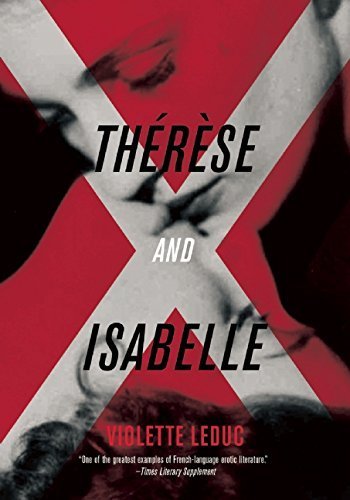What do you think?
Rate this book


"This is all the raw urgency of female adolescent sexuality: its energy and intensity, the push-pull of its excitement, its dangers and glories, building to a coming explosion."—Kate Millett, author of Mother Millett
"Read it in one sitting. . . . Literally breathless. This first-person torch song for 'the pink brute' reminds us why French schoolgirls are the emblem for naughty passions as literary classics."—Sarah Schulman, author of The Gentrification of the Mind
"School-aged, yet sage in their desires, Thérèse and Isabelle called forth an endless night—a dark and delicate space for them to explore the complexity of their love. I have waited a very long time to slip back into the unexpurgated, delicious darkness with these iconic lesbian lovers."—Amber Dawn, author of How Poetry Saved My Life
Thérèse and Isabelle is the tale of two boarding school girls in love. In 1966 when it was originally published in France, the text was censored because of its explicit depiction of young homosexuality. With this publication, the original, unexpurgated text—a stunning literary portrayal of female desire and sexuality—is available to a US audience for the first time. Included is an afterword by Michael Lucey, professor of French and comparative literature at the University of California, Berkeley.
Violette Leduc (1907–1972) has been referred to as "France's greatest unknown writer." Admired by Jean Genet, Nathalie Sarraute, and Albert Camus, Leduc was championed by Simone de Beauvoir when she published her scandalous autobiography La Batarde (1964).
176 pages, Kindle Edition
First published January 1, 1954
La caresse est au frisson ce que le crépuscule est à l'éclair.
(The caress is to the shiver what dusk is to the lightning-bolt.)
Quand on aime on est toujours sur le quai d'une gare.
(When one is in love, one is always on a railway-station platform.)
Je la regarde comme je regarde la mer le soir quand je ne la vois plus.
(I watch her the way I watch the sea in the evening when I can no longer see it.)
Ma bouche rencontra sa bouche comme la feuille morte la terre.
(My mouth met her mouth as a dead leaf meets the earth.)
J'entrais dans sa bouche comme on entre dans la guerre
(I entered her mouth the way you enter a war.)
’Virginia Woolf foresaw Leduc’s position, asserting that if a woman were to write accurately and precisely about her feelings, she would find no man— that is, no one at all— to publish her. Now we have Thérèse et Isabelle as a whole work of art, with its original coherence and trajectory at last complete.’